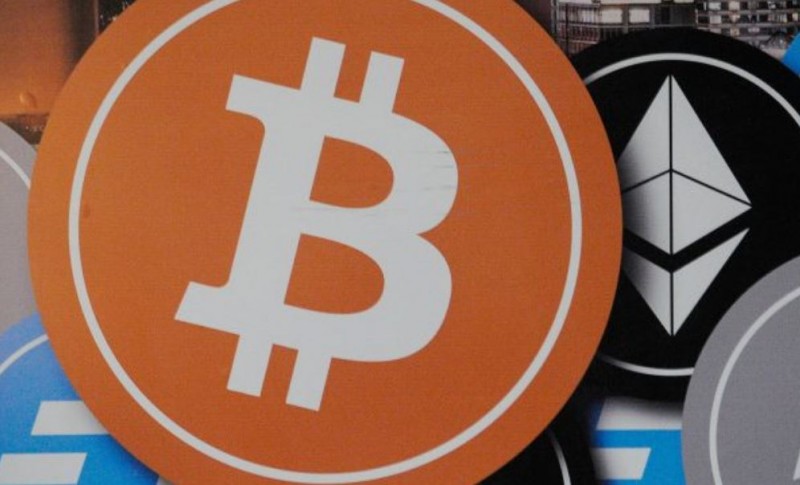
Bitcoin, the pioneering digital currency, has ignited global debates. As its impact reverberates, the world grapples with a question: Is Bitcoin a revolutionary financial boon or a potential malevolent curse? Don't let your lack of experience hold you back from profitable Bitcoin trades. Visit https://profit-edge.com to start trading and make the most of your investments.
The Upsides of Bitcoin (Divine Boon)
When discussing the potential advantages of Bitcoin, one cannot ignore its groundbreaking feature of decentralization and the financial sovereignty it offers. Bitcoin operates without the need for centralized financial institutions, granting users a unique form of monetary freedom. This means that for the first time in history, individuals can transfer value across the internet without the interference or oversight of middlemen like banks or governments.
Furthermore, Bitcoin has emerged as a beacon of hope for global financial inclusion. There are billions of individuals worldwide without access to traditional banking services, primarily due to geographical barriers or financial constraints. Bitcoin, with its decentralized nature, offers a solution by bringing financial services directly to the unbanked, leveling the financial playing field. This has the potential to revolutionize industries, especially when considering international remittances. Traditionally, sending money across borders involved hefty fees and extensive wait times.
Lastly, the underlying technology of Bitcoin, the blockchain, promises unparalleled transparency and security. Every Bitcoin transaction gets recorded on a public ledger known as the blockchain. This ledger is immutable, meaning once a transaction is recorded, it cannot be altered or deleted. This brings an unprecedented level of transparency to the financial world. No longer do people need to trust institutions with their money blindly; they can verify transactions themselves on the blockchain.
The Downsides of Bitcoin (Malevolent Curse)
Bitcoin's groundbreaking emergence as the world's first decentralized digital currency has undeniably shifted paradigms in the financial sector. However, its evolution hasn't come without challenges and concerns. One of the significant criticisms levied against Bitcoin revolves around environmental concerns. The energy required to mine Bitcoin—essentially the process by which new coins are created and transactions are added to the blockchain—has been found to be extremely high. Bitcoin mining often relies on vast amounts of electricity, primarily derived from non-renewable sources.
The financial risks inherent in Bitcoin cannot be understated, largely due to its pronounced volatility. Historically, the price of Bitcoin has witnessed dramatic fluctuations over short periods, leading to significant financial losses for investors unprepared for such swift market movements. The crypto market's relative infancy compared to traditional financial markets means it's more susceptible to speculative trading, which can exacerbate this volatility.
Lastly, Bitcoin's pseudonymous nature has made it attractive for illicit activities. Over the years, the digital currency has been associated with various illegal operations, from money laundering to transactions on the dark web. This association has prompted regulatory concerns, with governments around the world grappling with how to oversee and regulate Bitcoin usage.
The Future of Bitcoin: Predictions and Speculations
One of the most intriguing discussions revolves around Bitcoin's potential integration with traditional banking systems. As the digital currency gains prominence, many speculate that established financial institutions might find ways to coexist with, or even embrace, Bitcoin. This could materialize in the form of partnerships, collaborations, or even new financial products centered around Bitcoin. Such integration could potentially bridge the gap between traditional finance and the emerging world of cryptocurrency, providing a more seamless experience for users and opening avenues for broader acceptance and trust in Bitcoin.
Government regulations and the emergence of Central Bank Digital Currencies (CBDCs) present another pivotal facet of Bitcoin's future landscape. As nations recognize the potential and risks of digital currencies, many are considering or have already begun developing their own state-backed digital currencies. The rise of CBDCs could present challenges to Bitcoin, particularly if these digital currencies offer similar benefits with the added trust and backing of a national government. While Bitcoin's decentralized nature gives it a unique edge, CBDCs could reshape the crypto space, potentially influencing Bitcoin's dominance.
Lastly, the world of cryptocurrency is ever-evolving, and Bitcoin, as the pioneer, will undoubtedly witness technological advancements. Future updates to the Bitcoin protocol could enhance its scalability, security, and user-friendliness. However, it's also worth noting that as new cryptocurrencies emerge, each with its own set of features and value propositions, Bitcoin might face stiff competition. Whether it continues to lead the pack or shares the spotlight with other promising cryptocurrencies remains to be seen.
Conclusion
Bitcoin stands at the crossroads of technological innovation and global skepticism. As its journey unfolds, its dual potential as both a groundbreaking asset and a subject of concern remains evident.